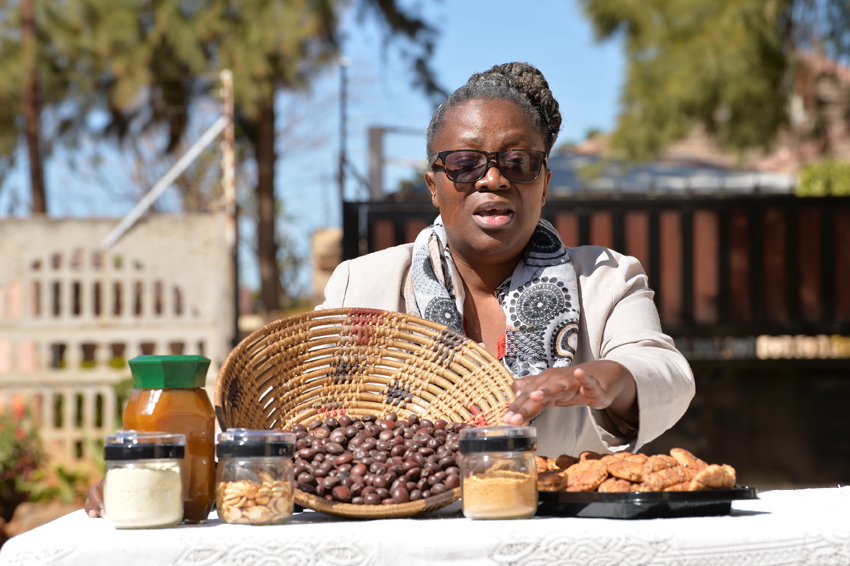Motlhabi turns passion into business
15 Sep 2020
When the COVID – 19 pandemic struck, Ms Toro Motlhabi’s livelihood, like that of many other Batswana was affected.
However the imposed protocols did not deter her from engaging in meaningful thoughts of exploring the morama bean. Instead of folding her arms, Ms Motlhabi’s turned her passion into a positive avenue.
While confined at home, as a result of movement restrictions to control the spread of the COVID–19 pandemic, Ms Motlhabi ventured into making biscuits from morama beans, and turned her passion into a business.
The indigenous wild bean is generally roasted and eaten as a snack and Ms Motlhabi has explored it further, discovering its other possible use.
Her passion for working with the morama bean dates back to 2010, after attending an Agricultural Show at Jackalas No 1 village, where the National Food Technology Research Centre (NFTRC) stall displayed a variety of Morama products.
“I was intrigued by what I saw, and therefore explored the idea of making biscuits from morama beans. I recall morama being eaten as a snack in Molepolole and other localities where the wild bean is abundant,” she said.
“Back then, morama bean was roasted and then the hard shell cracked open, to reveal the delicacy inside.
From that event, I learnt that the bean has other uses. After the show, I pursued NFTRC to explore possible uses of the morama bean,” she added.
Through the tutelage of NFTRC, Ms Motlhabi saw her business exploits using the bean taking shape in 2010.
“I had benefited from research conducted by NFTRC on the uses of morama,” she said.
Other than being taken as a snack, Ms Motlhabi says research conducted at NFTRC revealed that the bean could be used to produce a wide range of products such as milk and oil. “I have learnt that the morama bean is an excellent source of protein, calcium, zinc, iron, folate and vitamin B.
The bean is also reported to possess medicinal elements for treatment of non-communicable diseases such as cardiovascular diseases, diabetes, and some cancers,” says Ms Motlhabi. She said morama milk was high in nutritional value.
Ms Motlhabi says working with the morama bean had become her side hustle. Mma Morama, as she is known on social media has created a variety of morama cookies.
She is of the view that the business of making cookies has the potential to thrive in the local market and the cookies exported as she was getting orders from neighbouring countries, especially South Africa and Namibia.
Ms Motlhabi says the ground morama is used to add flavor to other dishes and food products such as ice cream and desserts.
In addition, Ms Motlhabi said her endeavor was to explore the morama bean further and venture into all possible products that could be made from it.
“The bean can also be used to produce skin ointment,” she added.
To deal with scarcity and possible extinction of the plant, as it is also food to wild animals, Ms Motlhabi has started growing the plant in the back garden to sustain her business.
Other than the training acquired through NFTRC, Ms Motlhabi said the communities where morama is found had imparted with her indigenous knowledge on the use of the natural bean.
She said the country was blessed with abundance of natural resources worth exploring to empower communities.
Furthermore, she advised community to take advantage of their indigenous knowledge and the abundance natural flora to engage in businesses.
Ms Motlhabi hailed the recent ban on importation of baked goods as a welcome development and an opportunity for local businesses in that sector to grow and sustain the local market. ENDS
Source : BOPA
Author : Lesedi Thatayamodimo
Location : GABORONE
Event : FEATURE
Date : 15 Sep 2020






